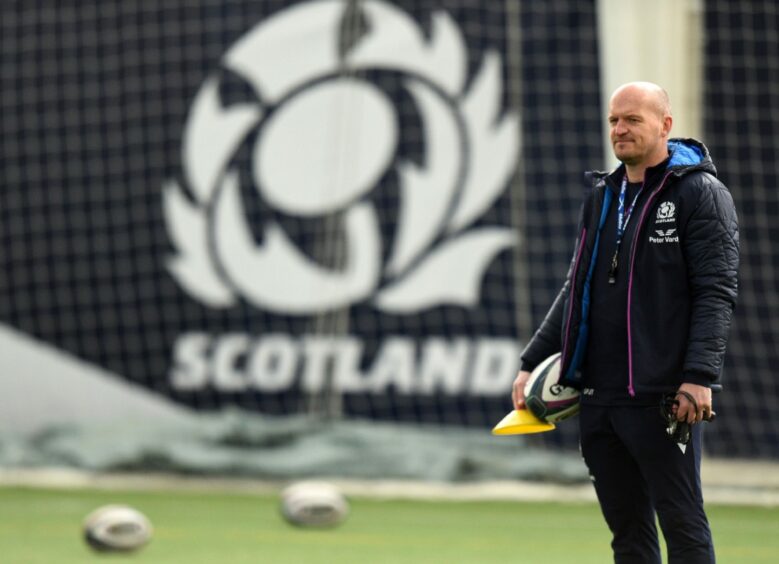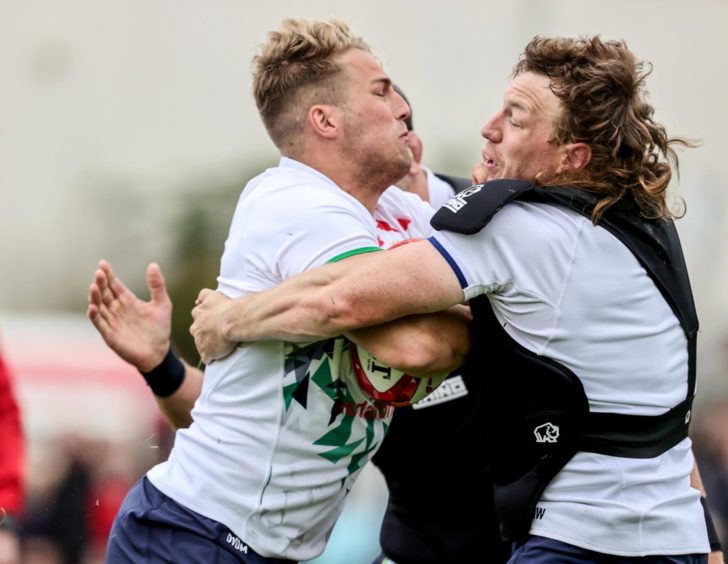Sometimes, players need the bitter taste of failure to act as the motivation and catalyst for great exploits in sport.
And, given the nerve-shredding fashion in which Scotland edged out England in the Calcutta Cup at Murrayfield, there is no reason for them to fear a meeting with an injury-weakened Welsh team this Saturday.
Perhaps it is too early to talk about Gregor Townsend’s men attaining their first Grand Slam or Six Nations Championship triumph of the 21st century, but there are signs they have learned how to succeed even when they aren’t at their best and have developed a potent defensive strategy.
One senses a growing belief in this party that they are a match for any rivals – and what’s in your head matters when you go to a place like Cardiff, where the Scots haven’t savoured the spoils since 2002 (in what was the peerless Bill McLaren’s final match as commentator).
Basically, it doesn’t matter how the job gets done as long as it gets done.
There was certainly a strong element of that attitude in 1984 when Scotland’s rugby team swept to their first Grand Slam in 59 years with a mixture of industry, resilience, verve and a determination to improve on false dawns in the past. And the echoes with the current side are very obvious.
Several of their players had been involved in the previous summer’s calamitous British & Irish Lions tour of New Zealand, which represented the nadir of Jim Telfer’s coaching career, while a number of others, such as David Leslie, had controversially not even been selected.
Yet, if that trip turned into a series of crushing disappointments – not unlike the Lions in South Africa last summer – it offered an invaluable lesson.
“When you first join up with the Lions, you tend to be a bit overwhelmed and you don’t have the same confidence as the lads from Wales and England,” said John Rutherford, Scotland’s prince of stand-offs. “But then, when you begin training with them, you discover they aren’t any better than you.
“There were eight of us on the tour (the same number as in last summer’s squad) and we saw pretty quickly that we didn’t have any reason to have an inferiority complex. I remember Roy Laidlaw saying on the plane home that he fancied Scotland’s chances in the 1984 Five Nations.
“We didn’t make a big song and dance about it. But we knew we were capable of beating anybody and we had France and England at Murrayfield (it’s the same this winter), which was usually the schedule which gave us the best chance of challenging for honours.
“Yet I still say, to this day, that we wouldn’t have won the Slam without the efforts of Jim (Telfer). He worked on everything to the nth degree and put a huge amount of effort into everything from tactics, to watching videos and studying the weather forecasts. Jim was ahead of his time.”
In advance of the campaign, the Scots gained confidence from a 25-25 draw with the All Blacks in Edinburgh. However, nobody, least of all Telfer, was bursting with Micawberish optimism ahead of the journey to Wales.
As he said: “There hadn’t even been a Triple Crown since the 1930s, so I don’t think expectations were very high”.
But, while they were deadpan to the pundits, they were deadly in analysing their opponents’ flaws.
The Welsh were nowhere near the quality of the terrific sides assembled in the 1970s and many of Scotland’s leading performers had been involved in the 34-18 trouncing two years earlier.
There was neither a fear factor, nor a history of failure to trouble them. They could be fast and open, blessed with mercurial backs, such as Rutherford, Laidlaw, David Johnston and Euan Kennedy, or they could muscle up, bolstered by players like Iain Milne, Colin Deans, Iain Paxton, John Beattie, David Leslie and Jim Aitken.
In the event, the match was hardly a classic, but nobody in blue was moaning after they emerged with a deserved 15-9 success. Paxton and Aitken scored tries and Leslie was the star of the show.
It was an efficient victory and the same will suffice for Townsend and his troops this weekend. Already, it seems France and Ireland are their main challengers and the priority is simply to build momentum from the Calcutta Cup and expose further deficiencies in this creaking Welsh line-up.
There were no grandiose predictions of glory at the climax in Cardiff in 1984. This was a squad built in Telfer’s image, which clung to the philosophy that actions mattered a lot more than words.
Nonetheless, the Scots were up and running and had shown the quality of their forwards.
“When I look back, they were an incredibly talented bunch and that made my job a lot easier than it might have been,” said Rutherford.
“Some people in the media started talking about Grand Slams and Triple Crowns after we beat Wales, but that didn’t make any impression on the guys. We had to go out and win games, not talk about winning games.”
It will be the same if the Scots achieve a second victory in their 2022 campaign, but again, one suspects they’ll leave the predictions to the pundits.
There’s a confidence there, though, which suggests this could be a golden year for those who follow the Saltire. We’ll find out soon enough.
But it’s so exciting to witness the transformation from apprehension to exhilaration.




